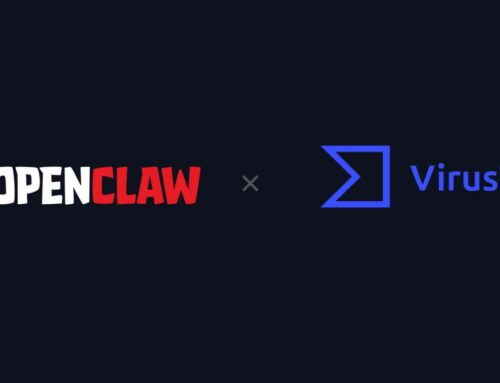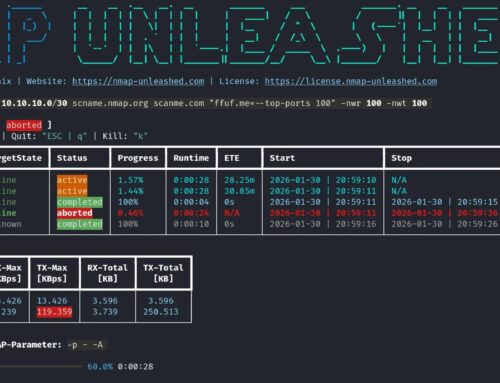
VexTrio TDS System Developing Several Malicious Apps Mimic as VPNs to Publish in Google Play and App Store
The VexTrio Menace: Malicious VPN Apps Hijacking Google Play and App Store
In an alarming development for mobile security, the notorious VexTrio traffic distribution system (TDS) has significantly expanded its cybercriminal playbook. Long a dominant force in malicious advertising and web-based scams, VexTrio is now directly infiltrating the mobile app ecosystem. This sophisticated threat actor is developing and distributing malicious applications that masquerade as legitimate VPN services, successfully publishing them to both Google Play and the Apple App Store, thereby exposing millions of users to new forms of digital exploitation.
This strategic shift represents a critical escalation in VexTrio’s operations, underscoring the urgent need for enhanced vigilance among users and robust detection mechanisms from app store operators. The core of this threat lies in VexTrio’s ability to leverage the perceived legitimacy and utility of VPNs to deliver a range of malicious payloads and compromise user data.
VexTrio’s Evolution: From Web Exploitation to Mobile App Dominance
Since its emergence in 2015, VexTrio has
established itself as a highly effective and persistent threat in the malicious advertising landscape. Its modus operandi traditionally involved sophisticated traffic redirection, adware distribution, and phishing campaigns via compromised websites and malvertising networks. The transition to mobile app development marks a significant pivot, leveraging established app store distribution channels to bypass traditional web security layers and directly infect user devices.
This evolution highlights a common trend among seasoned cybercriminal groups: adapting tactics to exploit new attack vectors and maintain profitability. By masquerading as VPNs, VexTrio exploits user demand for privacy and secure browsing, turning an intended security solution into a conduit for compromise.
How Malicious VPN Apps Operate
Once downloaded and installed, these fake VPN applications can initiate a variety of malicious activities. While specifics vary, common behaviors include:
- Data Exfiltration: Covertly collecting sensitive user data, including personal information, browsing history, and login credentials.
- Adware and Malvertising: Injecting intrusive advertisements, often beyond the scope of legitimate ad networks, leading to a degraded user experience and potential redirection to further malicious sites.
- Subscription Fraud: Tricking users into signing up for unwanted premium services, leading to unexpected charges.
- Botnet Participation: Turning infected devices into nodes within a botnet, used for distributed denial-of-service (DDoS) attacks, spam campaigns, or other illicit activities.
- Root Access and Malware Delivery: In more severe cases, attempting to gain root access to the device or download additional malware, potentially including spyware or ransomware.
The deceptive nature of these apps makes detection challenging, as they often mimic the user interface and functionality of legitimate VPNs, at least initially, to avoid immediate suspicion.
Remediation Actions for Users and Organizations
Protecting against VexTrio’s malicious VPN apps requires a multi-layered approach involving user education, proactive security measures, and ongoing vigilance.
- Verify App Authenticity: Before downloading any app, especially VPNs, thoroughly research the developer. Check reviews, developer website, and look for inconsistencies or red flags. Prioritize well-known and reputable VPN providers.
- Scrutinize App Permissions: Pay close attention to the permissions requested by the app during installation. A VPN app, for instance, should not require access to your contacts or SMS messages. Grant only necessary permissions.
- Use Reputable Security Software: Install and maintain a reputable mobile security solution on your device. These tools can often detect and block malicious applications before they cause significant harm.
- Keep OS and Apps Updated: Ensure your mobile operating system and all installed applications are kept up-to-date. Updates often include security patches that address known vulnerabilities.
- Monitor Device Behavior: Be attentive to unusual device behavior, such as rapid battery drain, excessive data usage, increased ad pop-ups, or performance degradation, which could indicate a malicious app.
- Report Suspicious Apps: If you suspect an app is malicious, report it to the respective app store immediately. This helps protect other users.
Tools for Detection and Mitigation
| Tool Name | Purpose | Link |
|---|---|---|
| Virustotal | File Analysis for Malware Detection | https://www.virustotal.com/ |
| Malwarebytes Mobile | Mobile Malware Detection & Removal | https://www.malwarebytes.com/mobile |
| Avast Mobile Security | Mobile Security, Antivirus, and App Scanner | https://www.avast.com/free-mobile-security |
| App Census | App Permission Analysis (Research Tool) | https://appcensus.mobi/ |
| Google Play Protect | Built-in Android Malware Scanning | (Integrated into Android devices) |
Conclusion
VexTrio’s pivot to distributing malicious VPN applications via official app stores marks a significant escalation in the mobile threat landscape. Their ability to bypass conventional security measures by masquerading as legitimate services highlights the sophistication of modern cyber threats. Users must adopt a proactive security posture, emphasizing vigilance, informed app choices, and the use of robust security tools. For organizations, this development underscores the importance of employee education on mobile security best practices and the implementation of mobile device management (MDM) solutions to mitigate risks associated with unvetted applications. Stay informed, stay secure.





